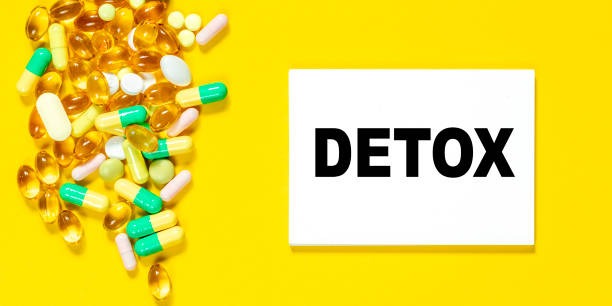Methamphetamine is considered one of the most harmful drugs due to how easily it can be abused. It greatly affects one’s mental and physical well-being. If you or someone you know is struggling with losing control of meth, the initial and most essential step in the path to recovery is undergoing a meth detox under medical supervision. This not only focuses on the physical withdrawal stage but also sets the foundations for long-lasting recovery. It’s critical to understand that detox is far more than just discontinuing drug use; it’s about starting a new life. Having the right information about the process can change everything.
The Cycle of Dependency
Meth is a stimulant that seizes control of the central nervous system, multiplying the dopamine level, resulting in an outburst of pleasure. This leads to the development of a dependency cycle. Over time, the brain will find it impossible to function “normally” without the presence of meth, and quitting without assistance becomes almost impossible. Chronic usage can lead to severe mental issues like intense paranoia, hallucination, anxiety, and aggression. It will also result in drastic weight loss, tooth decay, and heart problems. The rapid onset of meth addiction combined with the incredibly painful withdrawal symptoms is what makes overcoming the disease so difficult. Many people relapse because they attempt unsupervised detoxification and are unable to cope with the symptoms. In this case, professional help isn’t just helpful—it’s crucial.
Importance of Medical Guidance in Meth Detox
Meth detox isn’t exactly easy; it is an emotionally and physically draining undertaking that requires constant attention. Withdrawal symptoms can include extreme exhaustion, debilitating depression, and even suicidal ideation or psychotic episodes. Medical supervision guarantees that the relevant help will be available in terms of psychotropic drugs, relevant counsel, and appropriate mental health support.
The most dangerous part of detoxing at home is the high probability of succumbing to the need to use it again to alleviate the discomfort. In contrast, patients in a controlled clinical setting are cared for and encouraged throughout the entire process by a dedicated team specially trained to deal with the range of challenges presented during withdrawal. This support improves the chances of successful detox and retention of the overall treatment plan.
What happens in the Meth detox process?
There are several common stages and symptoms that most people go through, but every individual will experience their detox journey differently. Withdrawal symptoms will begin within 24 hours of stopping the use of meth. This first stage is usually the hardest in terms of physical strain, and the following symptoms can be expected: extreme tiredness, dehydration, anxiety, and overwhelming cravings.
Emotional symptoms take over in the form of increased depression, irritability, and even paranoia. A lot of people describe this period as emotionally feeling raw and extremely overwhelmed. That is why having the therapeutic dimension during detox is crucial – clients need to be able to feel validated.
The sleep pattern improves gradually along with the energy levels and the mood, which stabilizes by the end of the first week to mark the lifting of the fog. Despite this, cravings can persist for weeks or months, which makes chronic care support highly important.
How Therapy Supports Detoxes in Meth Detox
Recovery is only part of the entire story, and detox is just the first chapter. In order to maintain sobriety, therapy has to play a large role in the individual’s life to prevent relapse. The person needs to understand the addiction and learn how to cope; these are only some of the things that can be achieved through CBT, contingency management, and motivational interviewing.
Therapeutic intervention during the detox process allows a person to emotionally unpack, manage stress, and heal from any underlying trauma. Many of the people who are addicted to meth have co-occurring disorders that include PTSD, severe anxiety, or depression. With dual-diagnosis treatment, it is possible to address all the components of a person’s health rather than just the addiction.
Why There Must Be an Individualized Approach to Meth Detox
There is no standardized approach when it comes to meth detox. Things like age, length of addiction, use of additional substances, medical history, and mental well-being all affect the methodology of detox. As an example, someone who has been a chronic daily meth user for several years will require a different methodology than someone who has only used it for a short period and recently started.
Most professional facilities have intake specialists who conduct a complete evaluation with the intention of formulating a treatment plan that caters to the individual needs of every client. Clients, while going through the detox process, might also require medication to manage symptoms and nutritional support to help the body recover. Holistic frameworks like these make true sustainable recovery achievable.
Risks of Stopping Meth Addiction Treatment “Cold Turkey”
Some folks who are addicted to crystal meth try to quit on their own. Most often, this self-assessment leads to a relapse, hospitalization, or, in more extreme cases, a fatal outcome. The self-imposed method and self-assessment lead to extremely dangerous behavior, which can result in suicidal thoughts and even attempts.
An individual attempting suicide or harming themselves without medical guidance opens themselves up to facing dehydrated states, prolonged hallucinations, enduring heart issues, and even worsened states of depression. Contrarily, a medical detox facility is equipped with the appropriate medicines and therapies that alleviate most symptoms and offer constant care that isn’t put on hold. Risks to health and life are ignored entirely. Showing professional aid shouldn’t be considered because taking aid isn’t a display of vulnerability. At best, taking professional help is an intelligent step towards safeguarding one’s life.
Importance of Timely Out-Patient Therapy Following Specialized In-Patient Detox
Success achieved through therapeutic interventions, medical or otherwise, is only recognized when there is ongoing maintenance of these progressed changes. In addition to the maintenance mentioned above, motivation stems from driving forces that made the individual use crystal meth in the first place. Ongoing maintenance tackles the deeply embedded issue string.
When the detox process is finished, the body and mind are refreshed and stronger. That allows deeper exploration into the damaging psychological and behavioral approaches that maintained the addiction. Without this level of work, the danger of relapse remains extremely high. Cravings for Meth—a powerful stimulant and popular drug—can last persistently even after the withdrawal symptoms have passed. Without the proper tools, cravings can defeat even the strongest resolve.
Recovering After Meth
The best part of life after detox is getting a chance to start over. People who were once severely depressed and felt broken can now feel joy, connection, and purpose in their lives once again. Life after meth might involve going back to work, spending time with friends and family, going back to school, and discovering new hobbies. Recovery is about more than just sobriety. It’s about constructing a life that one would actually want to stay sober for.
Regardless of the situation, healing is a gradual process. There will be obstacles along the way; however, overcoming addiction is possible with unwavering resolve. Choosing detox options is, in essence, choosing a new life. Every step you take feels like a burden lifted, and that transformation brings you one step closer to the person you were destined to become.
Conclusions: Loneliness Is Not A Requirement For Overcoming Meth Addiction
The cycle of meth addiction creates an ever-spiraling feeling of isolation. So many people feel hopeless while trapped in a cycle, but there is help waiting for you. The most important part of this journey is deciding to detox with the help of professionals.
Here at Silicon Valley Recovery, our medically supervised meth detox services are centered around the safety and success of our clients. Walk with us from your first detox session, and trust that we will provide the help you need through the entire recovery process. The best part is you don’t have to face meth addiction alone – we will be there to provide renewed hope every step of the way.






